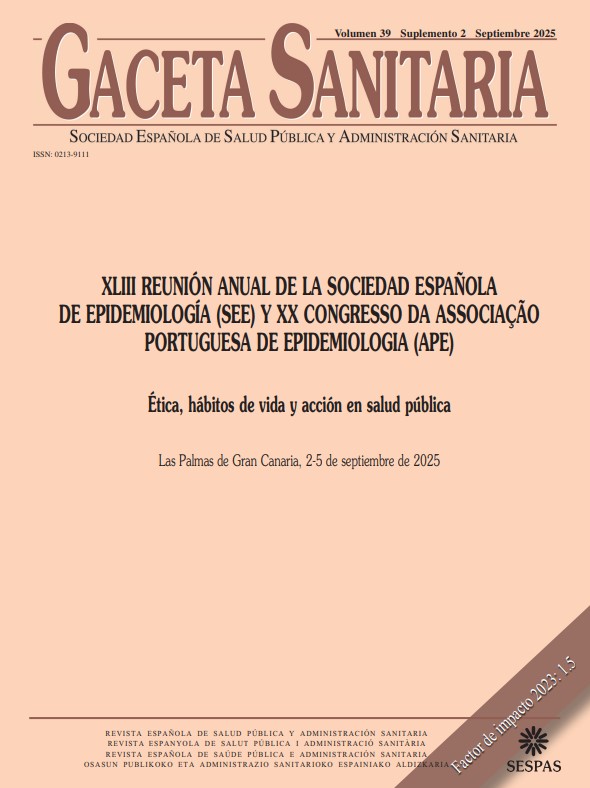788 - PSYCHOLOGICAL WELL-BEING AND INCIDENT DEPRESSION WITHIN THE SUN COHORT STUDY
Department of Preventive Medicine and Public Health, University of Navarra; Mental Health Department, Osasunbidea; Navarra Institute for Health Research (IdiSNA); CIBERobn; Department of Medicine and Health Sciences, University of Alcalá.
Background/Objectives: Psychological well-being (PWB) reduces non-communicable disease mortality and enhances longevity, yet its impact on depression incidence has received lower attention. We examined the prospective association between PWB and depression incidence within the “Seguimiento Universidad de Navarra” (SUN) cohort, framed within the biopsychosocial model that emphasizes the interplay of biological, psychological, and social factors in health outcomes.
Methods: A total of 4,888 participants from the SUN cohort completed the 18-year follow-up questionnaire. Among them, 2,109 individuals without prevalent depression, fulfilled the 29-item Ryff Scale to assess PWB and were followed for at least 20 years. Previously validated self-reported depression and its onset were reported biennially. Cox proportional hazards regression models were used to estimate hazard ratios, adjusting for potential confounders such as age, sex, lifestyle factors and comorbidities.
Results: Over a median follow-up of 2.62 years, 106 new cases of depression were identified. Non-optimal PWB was associated with a significant 72% relative increase in depression risk (HR = 1.72, 95%CI: 1.01-2.92). Focusing on PWB dimensions, non-optimal environmental mastery (HR = 1.77, IC95%: 1.05-2.99), and non-optimal self-acceptance (HR = 1.76, 95%CI: 1.05-2.95) showed the strongest associations with incident depression.
Conclusions/Recommendations: Non-optimal PWB associates with subsequent increased risk of depression in a cohort of university graduates, particularly in environmental mastery and self-acceptance dimensions. These findings underscore the importance of fostering PWB to mitigate depression risk, particularly by addressing dimensions like environmental mastery and self-acceptance, and highlights the utility of the biopsychosocial framework in understanding mental health determinants.
Funding: Instituto de Salud Carlos III: projects PI20/00564, PI23/01332, co-funded by the European Union.















